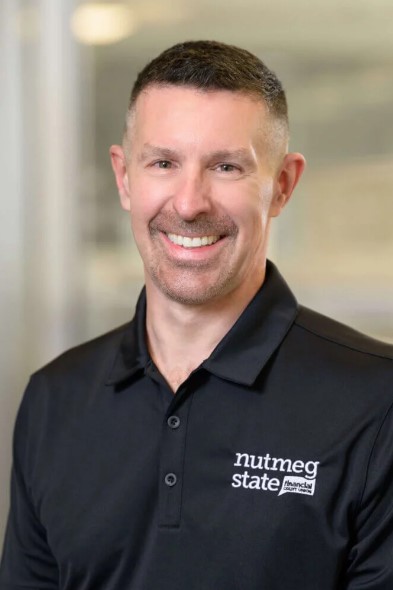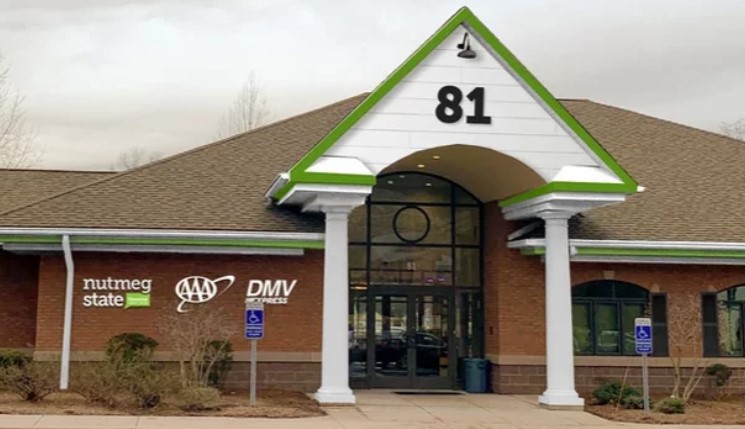Nutmeg State Financial Credit Union expands field of offer
Connecticut’s Nutmeg State Financial Credit Union is reaching out to people well outside of the “Nutmeg State,” opening membership and services to American Automotive Association (AAA) account holders nationwide and to individuals working with the nonprofit Community Impact Fund.
Founded in 1936 and headquartered in Rocky Hill, Nutmeg State has roughly $6 million in assets and branches across the state serving more than 40,000 members. The credit union adheres to the “Cooperative Principles” that emphasize working with and caring about local communities and working alongside other organizations that have similar missions.

“We’re a credit union, which means we’re a not-for-profit organization,” said John Holt, CEO of Nutmeg State, when asked about the motivation behind recent filings with the state’s banking commissioner for expanded fields of coverage. Those approvals went into effect on Sept. 25 and Oct. 2, respectively.

“Our goal is to really help people and communities, our priority isn’t making money, even though we have to make money to pay our bills,” Holt said. “Our focus is on helping individuals and in some cases communities, particularly with the Community Impact Fund, which will help people have their basic needs met. Through a membership with Nutmeg, they can get access to the Community Impact Fund and in some cases become eligible for 0% interest loans of between $500 and $5,000. Providing that sort of assistance is what credit unions are all about.”
The Community Impact Fund is based in Greenwood Village, Colorado, and offers organizations and individuals 0% interest loans with a long period for paying back. Ranging from churches and local nonprofits to other credit unions, many organizations benefit from these generous terms, even if for comparatively small amounts – even a thousand dollars can be an important lifeline for small organizations or individuals, according to Holt. Both the Community Impact Fund and Nutmeg State hope to help strengthen communities across the country.
The expanded field of offer will also allow AAA members to join the Nutmeg State without residing in Connecticut. The credit union has a longstanding relation with AAA – its Norwalk branch hosts one of AAA’s DMV Express locations throughout the state, letting members update licenses and handle bureaucratic processes while avoiding the notorious long lines and wait times at the government agency’s offices.
Unlike when a bank tries to expand its offerings and customer base, credit unions must amend their bylaws and file an application with the Connecticut Banking Commission.
“There needs to be a purpose and strategy,” said Holt. “The way credit unions are structured you can’t just offer membership to anybody anywhere in the world like some of the biggest banks can. It really has to meet a purpose, and it can’t just be increasing the field of membership for its own sake.”
According to Holt, current customers will not notice obvious changes as a result of the expanded fields of coverage, but there are new services on the horizon.
“Going forward we are going to focus our strategy around putting branches in underbanked and underserved areas, and then come June we will have a much more robust and advanced online banking mobile app,” Holt said.
The updated app and a revamped web portal are intended to enable access to Nutmeg State services from across the country, useful for current customers and a lifeline for people nationwide who need access to banking services but might be hard pressed to afford the fees and minimums of for-profit banks.
“All those things will continue to evolve as we expand our membership through these two associations throughout the country, and because we’re not necessarily going to build branches nationwide it will be a mobile first philosophy so that people have easy access to us and transact business online,” Holt said.
Holt believed that credit unions in general are gaining popularity because they are oriented around serving the people who bank with them rather than external financial interests.
“When you become a member of a credit union, you become a member,” Holt said. “We’re not catering to stockholders or shareholders; we’re catering to the communities and the people that become members which is very different. Credit unions have become even more popular after the economic downturn on Wall Street and the collapse of some of the bigger banks. We’re well known for higher levels of service because we’re so driven and focused on the level of service we provide. Not that banks aren’t, but our whole emphasis is different.”
